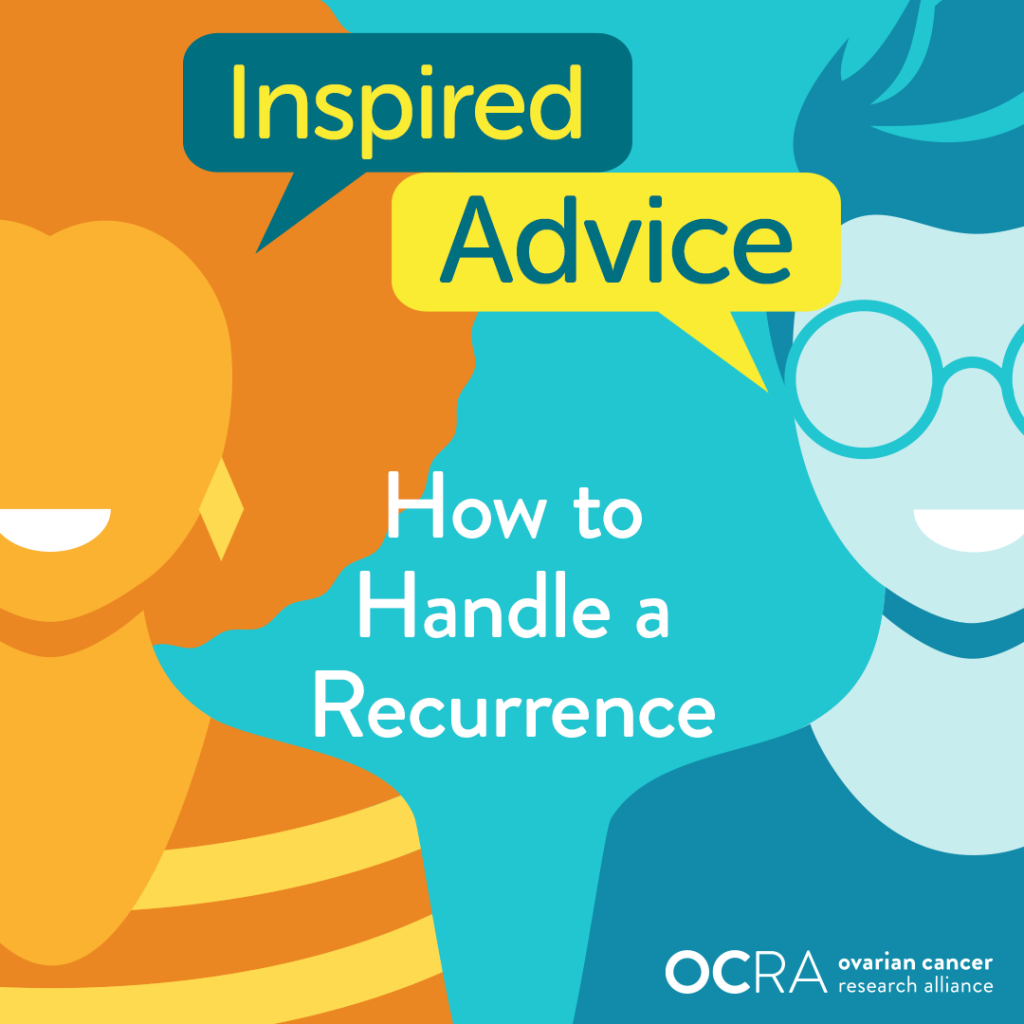
Those who have faced an ovarian or gynecologic cancer diagnosis have so much to offer to others going through a similar experience – be it support, tips or friendship. Inspired Advice is a blog series that tackles specific topics – from navigating a new diagnosis to adjusting diet and exercise – and shares advice and reflections from our OCRA Inspire Online Community. They are, in many ways, the experts.*
When Recurrence Becomes Reality
Though reaching the end of ovarian cancer treatment and being told that there is no evidence of disease may seem like a cause to celebrate, it is not uncommon to feel anxiety that the cancer will come back. Approximately 70% of patients will experience a recurrence of ovarian cancer — with the chance of return closely linked to the cancer stage at time of initial diagnosis — so it’s understandable that worry may linger even after going into remission. Finding out that the cancer has come back can be scary and overwhelming, but it’s important to remember that each case (and outcome) is as unique as the person going through it. Below are suggestions from others in our community about how to handle a recurrence. We hope you find their insights to be useful but please consult with your doctor before making any treatment decisions.
Don’t Get Discouraged
- “Many recurrences are treated successfully with some of the same or different drugs used in frontline treatment. Many women go on to have long remissions even after recurrences.”
- “Tell yourself that the chemo worked well before and it will do its job again.”
- “It’s common with ovarian cancer, but don’t despair. There are new drugs and combinations, along with clinical trials, that may work to eliminate any remaining cancer cells.”
- “When my doctor informed me of my recurrence I asked him, ‘What’s the plan? I’m ready.’ I didn’t let the recurrence beat me down. After all, it is my job to stay alive and I will fill my days doing what I need to do.”
- “There are so many new treatments and trials that you can live with ovarian cancer as a chronic condition and still live a good quality of life.”
Research, Research, Research
- “Take time to review your options thoroughly. I feel like I jumped into treatment too quickly before taking a breath and doing more research.”
- “Look at the options, choose and move forward.”
- “Research what chemo treatments have had a good success rate with other patients with a recurrence. Ask your doctor for suggestions, including all options for the next round of treatments”
Recharge and Reach Out
- “Breathe. Take one day at a time.”
- “I prayed and surrounded myself with friends and family with positive attitudes.”
Additional Resources
Get more guidance on managing ovarian cancer recurrence, including information on current treatment options and how to handle associated anxiety.
OCRA’s ovarian cancer online support community through Inspire.com offers a safe and private place to share encouraging feedback, compassionate support, and honest personal experiences. There are members from across the world who share their questions, concerns, successes and struggles with honesty and courage. Learn more or join our online Ovarian Cancer Inspire community.
*Sharing ideas and experiences can be extremely helpful but, as always, we advise speaking with your physician before making any dietary changes or adding herbs, teas, vitamins or supplements to your routine.


